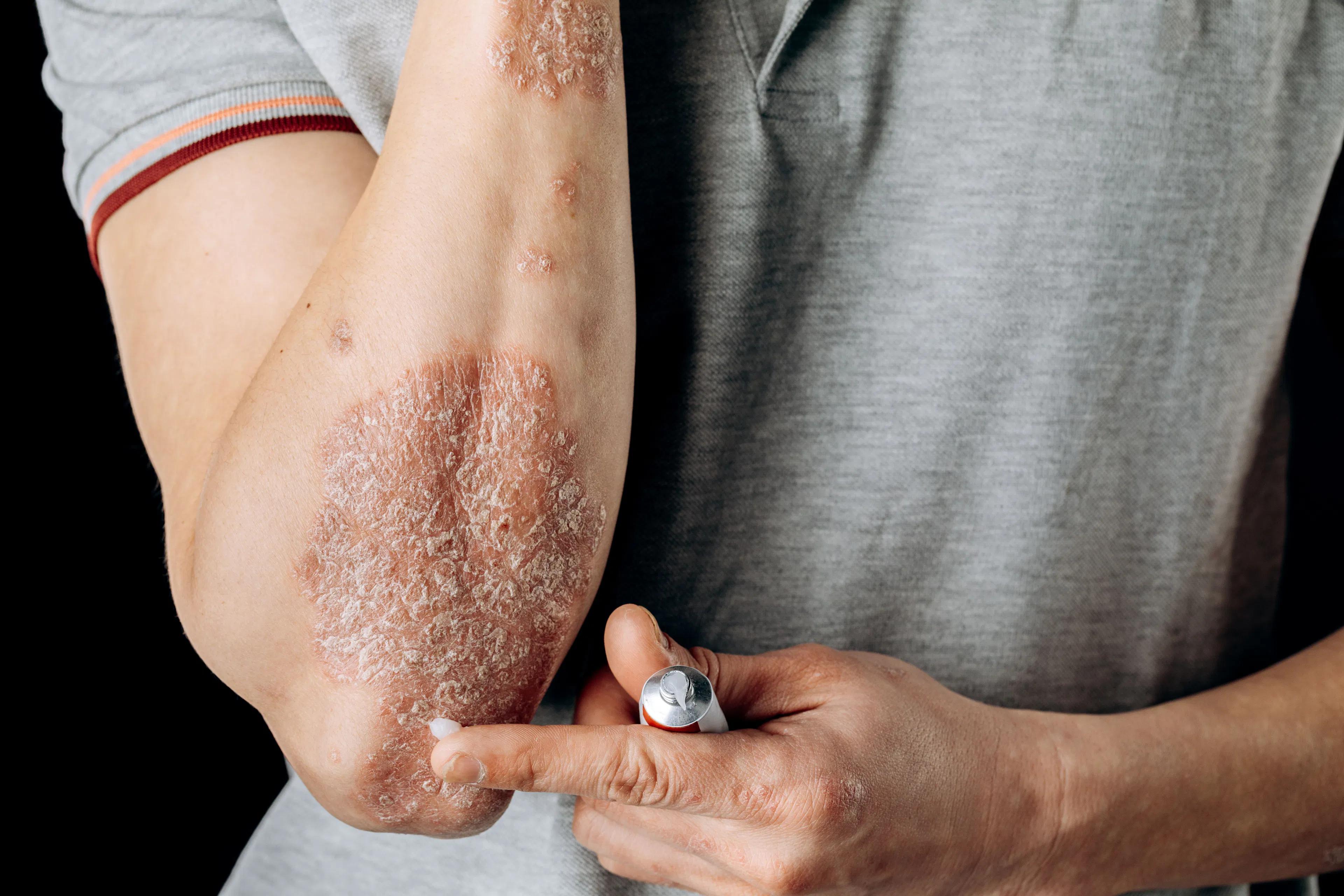Study Finds Association Between Sodium Intake and Risk of Atopic Dermatitis
Reducing sodium intake is associated with decreased risk of atopic dermatitis (AD) and flares.
A high sodium diet may increase the risk of atopic dermatitis (AD), according to findings published in JAMA Dermatology. The study authors observed that changes in daily sodium intake may contribute to eczema flares and a reduction in sodium may be a cost-effective, low-risk intervention for patients with AD.
Image Credit: © fusssergei - stock.adobe.com

Eczema, or AD, is considered one of the most common skin conditions that affects more than 31 million individuals in the United States. AD is a chronic disease that causes dry, itchy, and inflamed skin and is common in children, but can occur at any age. It is a manageable disease, although more severe cases can lead to skin infections when left untreated. Children and adults with moderate to severe AD may also experience poorer mental health, largely due to the pain and discomfort from debilitating itching.1
Standard of care treatment typically involves regularly moisturizing, as well as implementing other habits that relieve itching and prevent new flares. Some treatments may include medicated ointments and creams, and in more severe cases, topical corticosteroids (CS). However, patients who discontinue use of topical CS may experience topical steroid withdrawal (TSW), a painful condition that can take multiple years to alleviate. Medicated creams and ointments can be expensive, so the recent study findings may offer patients a cost-effective, low-risk intervention to ease their symptoms and improve their quality-of-life.1
In a cross-sectional study of 215,832 adults between the ages of 37 and 73 (mean [SD] age, 56.52 [8.06] years; 54.3% female) from the UK Biobank cohort, the study authors investigated the association between sodium intake and risk of AD. They examined 24-hour urine sodium excretion using a single spot urine sample collected from participants and identified those with AD and the severity of their condition using prescription codes.2,3
In combination with urine sodium measurements, the study authors considered calculations from the sex-specific International Cooperative Study on Salt, Other Factors, and Blood Pressure (INTERSALT) study, which includes body mass index; age; and urine concentrations of potassium, sodium, and creatinine. Mean (SD) estimated 24-hour urine sodium excretion was 3.01 (0.82) g per day, and 10,839 participants (5.0%) had a diagnosis of AD.2
The study authors measured the association between sodium intake and AD using multivariable logistics regression models adjusted for age, sex, race and ethnicity, Townsend Deprivation Index, and education. The model revealed that a 1-g increase in estimated 24-hour urine sodium excretion was associated with increased odds of AD (adjusted odds ratio [AOR], 1.11; 95% CI, 1.07-1.14), increased odds of active AD (AOR, 1.16; 95% CI, 1.05-1.28), and increased odds of increasing severity of AD (AOR, 1.11; 95% CI, 1.07-1.15).2
The findings showed that each gram of sodium excreted in urine over a 24-hour period was associated with 11% higher odds of an eczema diagnosis; 16% higher odds of having an active case; and 11% higher odds of increased severity. Additionally, further analysis of 13,000 adults in the United States in the National Health and Nutrition Examination Survey found that eating just 1 additional gram of sodium a day was associated with 22% higher odds of having an active case of AD.2,3
“Eczema flares can be difficult for patients to cope with,” Katrina Abuabara, MD, associate professor of dermatology at University of California San Francisco, associate adjunct professor of epidemiology at the University of California Berkeley School of Public Health, said in an interview, “especially when they are unable to anticipate them and don’t have recommendations on what they can do to avoid them.”3
The recent study findings have crucial implications for improving treatment regimens and outcomes for patients with mild, moderate, or severe AD, which can be a trial-and-error process to find the most effective therapies. Used in combination with other treatments, daily reduction of sodium intake is an accessible, affordable option to mediate the uncomfortable symptoms associated with AD and decrease the risk of eczema flares, improving overall quality of life for patients.
